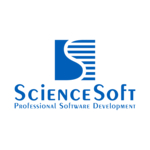What Will the Impacts of a Trump or Harris Administration Mean for U.S. Manufacturers?
U.S. Businesses at a Crossroads: Preparing for Success Post-2024 Presidential Election
Samantha Chapman, Chapman Communications, samantha@chapmancommunicationsgroup.com
As the 2024 U.S. presidential election approaches, business leaders across the country are grappling with uncertainty about what the outcome will mean for their future. Propel Software, creator of the first product value management (PVM) platform for manufacturing, medical device, and consumer electronics industries, is advising U.S. leaders to focus on responsiveness for building long-term success regardless of who occupies the Oval Office in 2025.
Ross Meyercord, CEO of Propel urges leaders to think beyond November. “Now is not the time to wait for the dust to settle. Companies should approach this election cycle as an opportunity to thrive in the face of constant change by proactively investing in technology and talent that keeps them nimble. Businesses always need to be prepared for changing tariffs, taxes, or geopolitical tensions that lead to unexpected interruptions – that’s just the new normal.”
Regardless of the elected administration, the future likely holds significant changes for trade, taxes, and regulatory compliance. As a result, it’s crucial U.S. businesses avoid making decisions contingent on election outcomes, and instead focus on resilience, agility, and growth.
A Republican Administration Under Donald Trump: Taxes & Tariffs
Businesses should anticipate a continuation of the tax cuts first introduced during Trump’s presidency. Trump has already pledged to extend those cuts and lower the corporate tax rate even further, aiming to bolster American manufacturing. However, Trump's tariff policies may also see a dramatic expansion. The former president has suggested imposing tariffs as high as 60% on Chinese goods and a blanket 20% tariff on imports from other nations. While these policies are designed to spur domestic production, they could also drive up costs for businesses reliant on global supply chains.
However, uncertainty extends beyond the White House. The real challenge will come from a potentially divided Congress, which could impact everything from trade negotiations to tax policies. And while tariffs may benefit some industries, others will need to find ways to mitigate the increased costs.
A Democratic Administration Under Kamala Harris: Focus on Innovation and the Middle Class
A Democratic administration presents a different vision for the economy. Harris has focused on creating an "opportunity economy," where entrepreneurship, technological innovation, and middle-class wealth-building are central. Her administration would likely continue the Biden-Harris push for regulatory reforms that support key sectors like AI, digital assets, and manufacturing while protecting consumer rights.
Additionally, Harris has proposed the "America Forward" tax credit, which would incentivize investment in rural and underrepresented communities, with an emphasis on workers' rights and job creation.
The Harris administration would likely prioritize strategic investments in new technologies and provide tax incentives that promote growth in underserved areas. But this vision comes with its own regulatory challenges, which businesses must prepare to navigate.
Business Leaders Brace for Change
According to PwC’s latest Pulse Survey of over 700 C-suite executives, the election’s outcome is already playing a significant role in how business leaders are planning for the future. A surprising 71% agree that, regardless of who wins, post-election trade and tax policies will hurt U.S. competitiveness. Additionally, 74% say the outcome of the election will shape trade decisions, and 76% say it will affect regulatory compliance.
“The election outcome is less material for businesses. What is important is quickly adapting to shifting policies or disruptions that address ‘what if’ scenarios and having the ability to pivot your strategy. A responsive manufacturing sector will have a significant impact on the broader economy, driving growth and favorably influencing GDP. One thing is clear: the only certainty is change,” Meyercord added.
About Propel Software
Propel helps product companies grow revenue and increase business value. Our product value management platform connects commercial and product teams to optimize decision making, drive process efficiencies, and engage customers with compelling products and experiences. Propel has a proven track record of improving product quality, speeding time to revenue and profit, and improving customer satisfaction. Recognized as one of America’s fastest growing private companies on the Inc 5000, Propel is also a Deloitte Technology Fast 500 winner, and one of Fortune America’s Most Innovative Companies. Built on Salesforce, Propel drives product success for hyper growth startups, corporate pioneers, and Fortune 500 leaders in the high tech, medtech and consumer goods industries. For more information, visit propelsoftware.com and follow us on LinkedIn.
View source version on businesswire.com: https://www.businesswire.com/news/home/20241023119906/en/
 Business wire
Business wire 











Add Comment